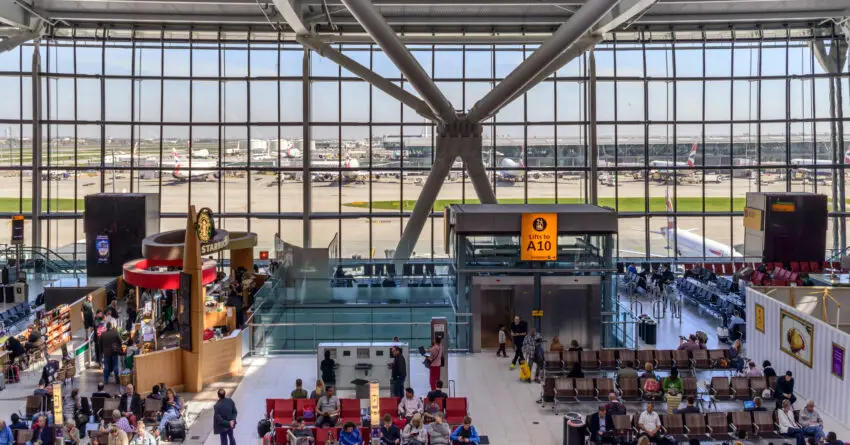Heathrow Airport has experienced a remarkable surge in passenger numbers, reaching an unprecedented 39.8 million in the first half of this year. These figures have surpassed pre-pandemic levels, marking a notable recovery for one of the world’s busiest airports.
On June 30, Heathrow recorded its busiest day ever, with over 268,000 travellers handled in a single day. This milestone underscores the airport’s significant role in global travel and its ability to manage massive crowds efficiently.
Record-Breaking Passenger Numbers
Heathrow Airport has reported a record-breaking 39.8 million passengers in the first half of this year. This surpasses pre-pandemic levels from 2019.
On June 30, the airport experienced its busiest day ever with over 268,000 travellers on more than 1,300 flights. This marks a significant milestone in the airport’s recovery.
Revenue and Profit Fluctuations
Despite the surge in passenger numbers, revenues fell by 2.9 per cent to £1.69 billion for the six-month period. Adjusted earnings also dropped by 11.1 per cent to £951 million.
However, there was a pre-tax profit increase of 15.8 per cent, reaching £323 million. This is a considerable turnaround from a loss of £139 million last year.
The growth has been attributed to high load factors and the use of larger aircraft on routes to Asia and the Middle East. Demand on these routes has doubled in recent years.
Preparation for Summer Surge
Heathrow has ramped up its workforce to 90,000 employees to handle the anticipated record number of passengers this summer. The goal is to avoid past chaos and improve punctuality.
Punctuality has already seen improvements, standing at 72.8 per cent for the first six months of the year. Over 95 per cent of passengers passed through security within five minutes.
Challenges in Revenue Streams
Revenues from flights have dropped by nearly 8 per cent. This includes a decrease in landing fees, aircraft parking charges, and passenger security fees.
The Civil Aviation Authority’s H7 settlement has imposed stringent rules on Heathrow, capping the annual charges paid by airlines. This regulatory environment has framed operations since 2022.
Heathrow is addressing a £400 million shortfall by introducing initiatives to streamline operations and enhance efficiencies. These efforts aim to improve the passenger experience and maintain safety.
Strategic Initiatives
Heathrow’s strategy includes six ‘beacons’ aimed at making the airport extraordinary and future-ready. These strategies focus on building a ‘winning team,’ embracing a ‘digital future,’ and ‘creating capacity.’
Thomas Woldbye, Heathrow’s CEO, praised his team’s dedication in managing record-breaking passenger numbers while maintaining excellent customer service. He’s optimistic about the airport’s future.
Cargo and Economy Impact
Alongside the passenger traffic, 765 tonnes of cargo have passed through Heathrow. This supports British industries in accessing global export markets.
Heathrow plays a crucial role in the UK economy. CEO Woldbye emphasised the importance of policy support to enhance global competitiveness and sustainable growth.
Competitive Pressures
Heathrow faces competitive pressures from European hubs. Bureaucratic tax and border policies are pushing passengers towards rival airports.
Despite new routes and record passenger numbers, these policies create challenges for Heathrow in maintaining its leading position.
In conclusion, Heathrow Airport’s record-breaking passenger numbers underscore its rapid recovery from the pandemic’s impact. Despite facing challenges in revenue streams, the airport remains a crucial hub for global travel.
Strategic initiatives and workforce expansions are paving the way for smoother operations and an enhanced passenger experience. Supported by policy and industry efforts, Heathrow’s future looks optimistic.

